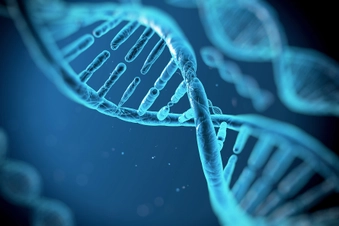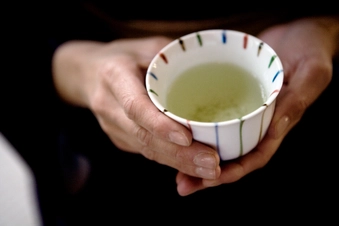Hispanics and MASH: Tips to Improve Your Liver Health

What Is MASH?
Metabolic dysfunction-associated steatohepatitis (MASH) happens when there is too much fat in the liver, which leads to inflammation. This condition is an advanced stage of metabolic dysfunction-associated steatotic liver disease (MASLD), which affects 47% of Hispanic adults in the United States.

Hispanic People and Liver Health
The Hispanic community in the United States faces a higher risk of getting MASLD and MASH. These conditions have increased not only among adults, but also among Latino children and teenagers. About 38% of children with obesity are diagnosed with fatty liver disease.

Why Are Hispanic People at a Higher Risk?
Hispanic people often carry the PNPLA3 gene, which affects fat metabolism in the liver. They also have a high rate of metabolic syndrome, which includes abdominal obesity, high blood pressure, high LDL (bad cholesterol), low HDL (good cholesterol), and type 2 diabetes. Limited access to nutritious food, language barriers, and lack of health insurance make it harder to prevent and treat MASH.

Your Community is Your Greatest Support
Some programs provide education about MASH through bilingual guides, infographics, and tutorials. In Arizona, for example, community farms teach people how to grow organic foods. The American Liver Foundation and its Think Liver Think Life campaign offer prevention programs and free screenings to promote liver health.

You Can Get Help Online
Organizations such as the National Alliance for Hispanic Health, the American Liver Foundation, and community health centers provide educational material on MASH prevention and treatment for the Hispanic community. There are also online resources that offer information about support groups, open clinical trials, state assistance programs, and new medications for the disease.

Look for Clinical Trials
Clinical trials are researching new treatments for MASH, including GLP-1 drugs like semaglutide (Ozempic, Wegovy) and tirzepatide (Mounjaro, Zepbound), which help manage type 2 diabetes, overweight, and obesity. Of these, Wegovy has been approved to treat MASH. If you've been diagnosed with MASH, talk to your doctor about tests for advanced fibrosis or fatty liver disease. The American Liver Foundation shares information on clinical trials for Hispanic people.

Access to Medications
Medications to treat MASH are costly, especially if you don’t have health insurance. Resmetirom (Rezdiffra) is the first FDA-approved treatment for MASH with advanced fibrosis. Other options include GLP-1 drugs like semaglutide (Ozempic) and tirzepatide (Mounjaro), which help with weight loss and insulin resistance. Health insurance companies often make the approval process for these medications complicated, with some requiring proof of weight loss.

Dangers of Natural Remedies for MASH
While medical treatments are key in managing MASH, lifestyle changes are also important. Eating a balanced diet and staying active help with healthy weight loss. There are natural or herbal remedies popular among Hispanic people, like using milk thistle, cardamom, or certain teas, but no scientific evidence proves they work for liver disease. In some cases, they can even be harmful.

Your Lifestyle
Adopting a healthier lifestyle is crucial for the effective treatment of MASH. You should avoid consuming processed and refined foods with high amounts of chemicals, preservatives, and fructose. This affects weight gain and the development of insulin resistance.

Healthy Eating While Keeping Your Traditions
Maintaining a healthy diet can be challenging for many Hispanic people. It can often be a matter of culture since certain foods are not typically part of traditional daily meals. Extreme diets are not recommended because they can be hard to sustain long-term. The most effective and realistic approach to managing MASH is a balanced and nutritious diet that aligns with your culture. This way, you can enjoy it and maintain it over time.

Is There a Diet That Helps With MASH?
The Mediterranean diet supports a healthy heart and benefits your metabolism. If you’ve been diagnosed with MASH, eat fruits, legumes, nuts, olive oil, fish, and lean meats in moderation. These foods have anti-inflammatory and beneficial properties that help protect your liver by improving fat metabolism.

Dos and Don’ts
Small changes in your diet are key to managing MASH. It's best to avoid sodas because they contain fructose, which is stored in the liver as fat. Simple changes can benefit your liver, such as replacing soda with water or flavored sparkling water and drinking coffee without sugar or cream. Check with your doctor about any medications that might cause weight gain.

More Cardio, Squats, and Weightlifting
To manage MASH, experts recommend that people with obesity lose 7%-10% of their weight, and around 3% for those without it. Keeping a balanced diet and exercising regularly are key. Cardio is a great option, but choose exercises you enjoy that also challenge your body. Try squats and weightlifting routines to build muscle mass. These changes can help you lose weight and improve insulin resistance.

Family Makes It Easier
In Latino communities, family activities play a key role in the well-being of people with MASH. Going for walks, playing outdoor games, or doing team sports with family can help manage the condition. When lifestyle changes involve our loved ones, it's easier to turn these beneficial activities into long-term healthy habits.
Show Sources
IMAGES COURTESY OF:
- iStock/Getty Images
- DigitalVision/Getty Images
- iStock/Getty Images
- E+/Getty Images
- E+/Getty Images
- iStock/Getty Images
- iStock/Getty Images
- The Image Bank/Getty Images
- DigitalVision/Getty Images
- iStock/Getty Images
- Moment/Getty Images
- Moment/Getty Images
- iStock/Getty Images
- iStock/Getty Images
SOURCES:
Blanca Lizaola-Mayo, MD, associate professor of medicine, Division of Gastroenterology and Hepatology, Mayo Clinic College of Medicine; medical director, Transplant Hepatology Center, Mayo Clinic in Arizona.
Cleveland Clinic: “Metabolic Dysfunction-Associated Steatotic Liver Disease (MASLD).”
VCU Health: “More than 40 % of U.S. adults have liver disease, with higher risk among Hispanics, new study finds.”
National Alliance for Hispanic Health.
Think Liver Think Life.
Mayo Clinic: "Pediatric metabolic dysfunction-associated steatotic liver disease (MASLD), formerly known as nonalcoholic fatty liver disease (NAFLD)."
American Liver Foundation.
BMJ Open: “Exploration of Latina/Hispanic women’s experiences living with non-alcoholic fatty liver disease: a qualitative study with patients in Houston."
Hepatology Communications: "The health care experience of adults with metabolic dysfunction-associated steatohepatitis and influence of PNPLA3: A qualitative study."
Las Milpitas Community Farm.
FDA: "FDA Approves Treatment for Serious Liver Disease Known as ‘MASH’